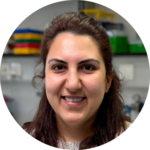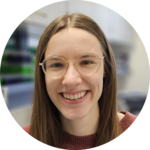Riedel Group
Metastases, Metabolism and the Microenvironment

Metastatic disease and tumour immune evasion are two major hurdles in cancer therapy. Around 90% of cancer related deaths are indeed still caused by metastatic systemic disease. Tumour-draining lymph nodes (TDLNs) are immunological hubs and often the first site where metastatic tumour cells are detected. We are interested in the cells of the metastatic TDLN niche, the so called stroma, and how these influence metastatic spread and anti-tumour immune responses. A main goal is to characterize the cellular cross-talk between tumour cells, cells of the immune system and the LN stroma.
Metabolites can play a major role in these processes and although it is well known that tumour cell transformation is accompanied by alterations of cellular metabolism to facilitate growth and proliferation, little is known about how this transformation impacts the cells of the microenvironment and cellular cross-talk. Furthermore, each potential metastatic site with its distinct metabolic characteristics will pose different challenges for disseminating tumour cells adding another layer of complexity.
Within all our projects we use an interdisciplinary approach by combining complex in vitro models, mouse models and patient samples.
Select publications
A TLR4-dependent fibroblast-monocyte axis in tumor-draining lymph nodes contributes to metastasis in triple-negative breast cancer. , , , , , , , , , , , , , , , , , , , , , , , , , , , , , https://doi.org/10.1016/j.immuni.2025.08.015
Tumor-Derived Lactic Acid Modulates Activation and Metabolic Status of Draining Lymph Node Stroma. Cancer Immunol Res. 2022 Apr 1;10(4):482-497. PMID: 35362044 Link
Tumor-induced stromal reprogramming drives lymph node transformation. Riedel A, Shorthouse D, Haas L, Hall BA, Shields J. Nat Immunol. 2016 Sep;17(9):1118-27. https://doi.org/10.1038/ni.3492
Single-Cell Transcriptomics of Regulatory T Cells Reveals Trajectories of Tissue Adaptation. Miragaia RJ, Gomes T, Chomka A, Jardine L, Riedel A, Hegazy AN, Whibley N, Tucci A, Chen X, Lindeman I, Emerton G, Krausgruber T, Shields J, Haniffa M, Powrie F, Teichmann SA. Immunity. 2019 Feb 19;50(2):493-504.e7. https://doi.org/10.1016/j.immuni.2019.01.001
Metastasis-initiating cells induce and exploit a fibroblast niche to fuel malignant colonization of the lungs. Pein M, Insua-Rodríguez J, Hongu T, Riedel A, Meier J, Wiedmann L, Decker K, Essers MAG, Sinn HP, Spaich S, Sütterlin M, Schneeweiss A, Trumpp A, Oskarsson T. Nat Commun. 2020 Mar 20;11(1):1494. https://doi.org/10.1038/s41467-020-15188-x
Single-Cell RNA Sequencing Reveals a Dynamic Stromal Niche That Supports Tumor Growth. Davidson S, Efremova M, Riedel A, Mahata B, Pramanik J, Huuhtanen J, Kar G, Vento-Tormo R, Hagai T, Chen X, Haniffa MA, Shields JD, Teichmann SA. Cell Rep. 2020 May 19;31(7):107628. https://doi.org/10.1016/j.celrep.2020.107628




Angela Riedel

Junior Group Leader
Angela studied Molecular Biotechnology at the University of Bielefeld and did her PhD in Molecular Oncology at the University of Southern Denmark. In 2013, Angela joined the lab of Jacqueline Shields at the MRC Cancer Unit at the University of Cambridge (UK) as a Postdoc.
In 2017 she moved to another Postdoc position at the German Cancer Research Centre (DKFZ), where she joined Thordur Oskarsson’s group to further delve into metastatic niches in breast cancer. Since 2020, she is a Junior Group Leader at the MSNZ Würzburg.
Arpa Aintablian

PostDoc
Arpa studied Biology and obtained her Master’s degree in Microbiology and Immunology from the American University of Beirut, Lebanon. Subsequently, she joined the lab of Prof. Manfred Lutz at the University of Würzburg, where she completed her PhD in Immunology.
Her research focused on the role of GM-CSF as inducer of suppressive myeloid cells, and the role of myeloid-derived suppressor cells in the context of tuberculosis vaccination. Since September 2025, she is a PostDoc in the lab of Dr Angela Riedel. Her current research is directed towards characterizing the immune microenvironment in tumors associated with different oncogenic drivers.
Andrea Cerchione

PhD Student
Andrea obtained her Bachelor’s Degree in Biotechnology at the Universitat Politècnica de València and her Master’s Degree in Bioinformatics at the Universidad Internacional de Valencia, Spain. In between her studies, she gained industry experience working in Drug Discovery in Oxford, UK. In September 2025, she started her PhD in Dr. Angela Riedel’s group at the MSNZ, Würzburg.
Her project focuses on multiple myeloma and aims to generate an integrated definition of high-risk disease pathobiology. This definition is obtained through a systems biology approach, which studies the tumor in the context of its microenvironment. To accomplish this, she uses techniques such as RNA sequencing (RNA-seq), flow cytometry, and metabolomics, as well as bioinformatic analysis of the data.
Ana Cetkovic

PhD Student
Ana obtained her Bachelor’s degree in Biological Chemistry and afterwards completed a Master’s degree program in Molecular Biology at the Johannes Kepler University Linz. In October 2023, she joined Dr. Angela Riedel’s group at the MSNZ Würzburg as a PhD student.
Ana’s PhD project is focused on the characterization of myeloid cell heterogeneity and the tumor-draining lymph node niche during melanoma development. Using mouse models, multi-color flow cytometry and single-cell transcriptomics, she aims to investigate the role of tumor-draining lymph node macrophages in metastasis and to identify mechanisms of how their reprogramming contributes to the efficacy of cancer immunotherapies.
Moutaz Helal

PhD Student
Moutaz obtained his bachelor’s degree in pharmacy in Egypt where he developed a deep interest in cancer research. Thus, he decided to pursue his master’s in the field of molecular oncology within the biochemistry program of the University of Würzburg.
He joined the MSNZ as a Master’s student and started his PhD project in October 2021. The project is focused on investigating stroma-mediated chemoresistance mechanisms in breast cancer and multiple myeloma utilizing state-of-the-art single-cell high-throughput sequencing techniques.
Mara John

PostDoc
Mara studied Human Biology (Biomedical Science) with focus on tumour biology in Marburg at the Philipps-University. In October 2020 she started her PhD in the labs of Dr Angela Riedel and Dr Leo Rasche at the MSNZ in Würzburg.
Her project focuses on multiple myeloma, particularly tumor and microenvironmental heterogeneity. One of her key aims is to characterize the T-cell niche, paying particular attention to the impact of chemotherapy on the niche. To achieve this, she employs multi-color flow cytometry and methods to evaluate cellular bioenergetic states, as well as spatial transcriptomics.
Max Krämer

PhD Student
Max studied Human Biology (Biomedical Science) with focus on tumor biology at the Philipps-University in Marburg. In October 2023 he joined the MSNZ starting his PhD in Dr. Angela Riedel’s laboratory in Würzburg.
His project is focused on metabolic priming influencing metastatic seeding in breast cancer, identifying key-regulators using techniques ranging from metabolomics to RNA-seq.
Greta Mattavelli

PhD Student
Greta studied in Milan, where she obtained her Bachelor and Master’s degrees in Medical and Molecular Biotechnology. In October 2020, she started her PhD in Dr Angela Riedel’s laboratory at the MSNZ in Würzburg.
Her project is focused on dissecting the role of stromal cells during metastatic dissemination and tumour immune evasion. Using a multi-omics approach, she aims to identify critical, tumour-stroma-specific cellular communication that can be targeted.
Ana-Alicia Melis

PhD Student
After obtaining a Bachelor's degree in Biosciences at the University of Heidelberg, Ana-Alicia continued her studies with a Master's degree in Biosciences at the University of Würzburg, where she specialised in molecular tumour biology and tissue engineering. In August 2024, she joined Dr Angela Riedel's group at the MSNZ for an internship and her master's thesis.
Her project focuses on organoid technology, specifically the establishment of patient-derived breast cancer organoids and their utilisation in drug screening.
Andrea Stabile

PhD Student
Andrea studied at the University of Pisa, where he obtained his Bachelor’s degree in Biological Sciences, followed by a Master’s degree in Molecular Biology and Genetics at the University of Pavia. In January 2025, he started his PhD in Dr. Angela Riedel’s laboratory at the MSNZ in Würzburg.
His project focuses on investigating the fate of immune cells within tumor-draining lymph nodes in triple-negative breast cancer mouse models and their role in metastatic dissemination. Additionally, he is involved in the bioinformatic analysis of single-cell RNA sequencing and spatial transcriptomics to uncover mechanisms driving immune responses and tumor progression.
Nihan Ugur

PostDoc
Nihan studied Molecular Biology and Genetics at Bilkent University and completed her Master’s degree in Biotechnology at Yeditepe University in Turkey. She did her PhD in Cell Biology in the lab of Prof. Gerhard Christofori at the University of Basel, Switzerland. In 2018, she joined the lab of Prof. Celeste Nelson at Princeton University (USA) as a Postdoc and worked on breast cancer cell invasion. In 2022, she moved to the lab of Prof. Linda Griffith at Massachusetts Institute of Technology (MIT) where she worked on cell invasion in 3D endometriosis models derived from patient samples. In February 2025, she joined to Dr. Angela Riedel’s group at the MSNZ Würzburg.
Her current research focuses on leveraging organoid technology to study breast cancer and endometriosis using patient-derived tissue samples. Nihan is particularly interested in investigating how the extracellular matrix in tumor-draining lymph nodes is altered during breast cancer metastasis. Additionally, she aims to identify novel drug targets for endometriosis by developing in vitro endometrial lesions.
Tabea Wacker

MSc Student
Tabea obtained her bachelor’s degree in Human and Molecular Biology at Saarland University and continued her studies in the Master's program in Biomedicine at the University of Würzburg. After completing an internship abroad in Uppsala, she joined Dr. Angela Riedel's group at the MSNZ for her master's thesis in November 2024.
Her project is focused on chemoresistance mechanisms in breast cancer mediated by fibroblasts using cell culture assays and RNA sequencing techniques.
You can find us here:
Institute for Virology and Immunobiology
MSNZ
Versbacher Str. 7
97078 Würzburg







